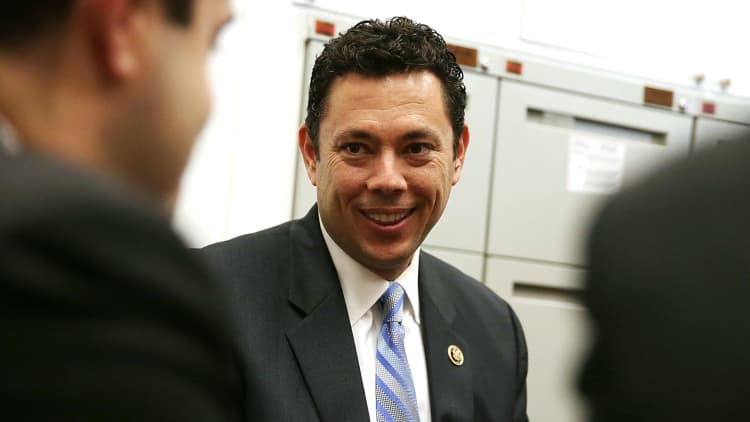Under the Senate's proposed health plan, the Better Care Reconciliation Act, deductibles will rise to new heights, according to the Congressional Budget Office.
Deductibles are the amount you as a consumer must pay each year before your health insurance coverage kicks in for services you receive beyond a certain minimum set of medical services. And they're far more common than they used to be. Nowadays half of Americans have health insurance that comes with a deductible of at least $1,000.
That's steep. But should the Senate repeal the Affordable Care Act and pass its replacement plan, the CBO warns that, by 2026, or only nine years from now, your deductible, if you buy health coverage on the individual insurance plan market, could reach $13,000 a year — or more.
Under this legislation, for a single policyholder purchasing an illustrative benchmark plan (with an actuarial value of 58 percent) in 2026, the deductible for medical and drug expenses combined would be roughly $13,000, the agencies estimate. CBO and JCT's projections are for benchmark plans that are illustrative in that they do not include any cost-sharing reductions that might be implemented through the State Stability and Innovation Program and they would not provide any benefits before the deductible was met, except for preventive care.
For plans providing some benefits before the deductible was met, such as a limited number of primary care visits or generic drug purchases, the deductible would be higher.
By contrast, should the Affordable Care Act remain the law of the land, the CBO estimates your premiums by 2026 will be a far more modest $5,000, or 2.6 times lower.
Business Insider points out that, under this proposed Republican plan, deductibles "could get so high they're actually more than the poorest Americans earn."
The CBO concurs, predicting that large numbers of middle- and working-class Americans won't buy insurance at all, since policies would be out of reach. For those making $26,500, or 175 percent of the federal poverty level, and $56,800, or 375 percent of the federal poverty level, "the deductible would constitute about a half and a quarter of their income, respectively."

It does indeed seem that middle-class families would have a hard time paying monthly premiums, as well as an annual deductible of $13,000, to get coverage. In 2016, 35 percent of American adults had only and 34 percent had nothing, according to GOBankingRates. That's a total of 69 percent of Americans who had less than $1,000 stashed away.
Research from also found that most families, even those approaching retirement, have either little retirement savings or none.
As civil rights attorney and author Chase Madar's op-ed in the American Conservative argues, other developed nations have figured out a fix: single-payer health care, through which services are provided to citizens with no deductibles.
"In every first-world nation that has socialized medicine — whether it be a heavily regulated multi-insurer system like Germany, single-payer like Canada, or a purely socialized system like the United Kingdom — [health care] costs less," he writes. "A lot, lot less, in fact: While healthcare eats up nearly 18 percent of U.S. GDP, for other nations, from Australia and Canada to Germany and Japan, the figure hovers around 11 percent."
Not only are costs in Canada lower, but results are also often better, Madar adds: Residents in "Canada have less obesity and type II diabetes." And citizens are largely satisfied. There, "the single-payer healthcare system is such a part of national identity that even hard-right insurgents like Stockwell Day have enthusiastically pledged to maintain it."
Like this story? Like CNBC Make It on Facebook
Don't miss:



